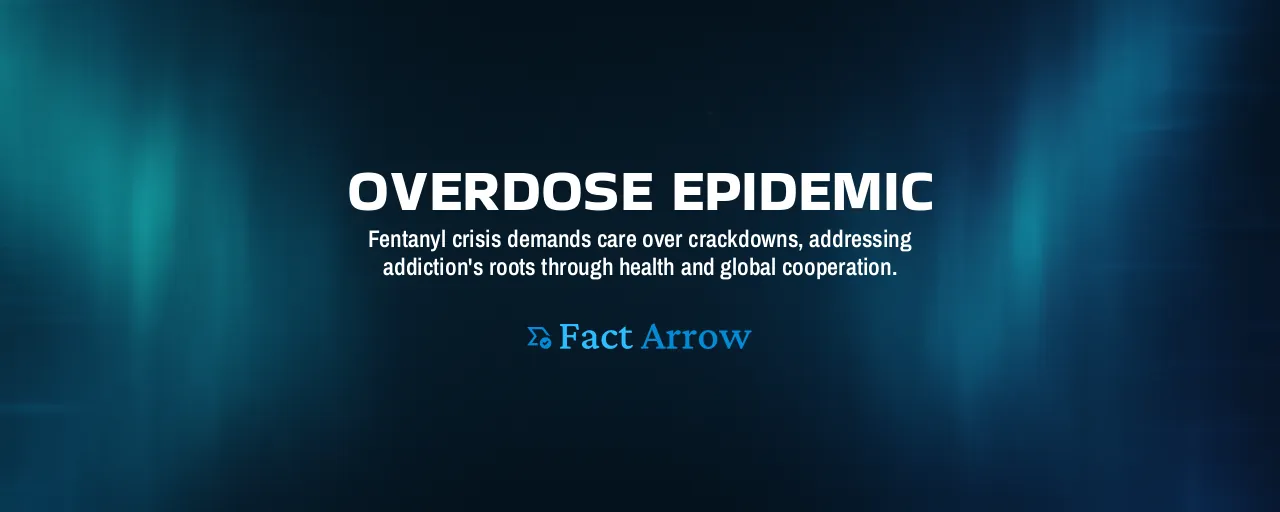The Human Cost of Fentanyl
Fentanyl kills, and it tears apart families and communities. In 2024, 102,000 Americans lost their lives to overdoses, mostly from illicit fentanyl smuggled across borders. The U.S. Department of the Treasury's sanctions on Los Chapitos, a Sinaloa Cartel faction, aim to disrupt their trafficking. Yet, these measures feel like a half-step when lives are at stake. Financial penalties alone cannot address the grief of a parent in rural Ohio or the despair in tribal communities hit hardest by this crisis.
The Treasury's action targets Los Chapitos' leaders, Archivaldo and Jesús Guzmán Salazar, sons of 'El Chapo.' With Executive Orders 14059 and 13224, it freezes assets and signals resolve. But sanctions do not stop the clandestine labs or the counterfeit pills flooding U.S. streets. Over 600 people died in Sinaloa's turf wars since September 2024, proof of the cartel's relentless power. Why lean so heavily on a tool that disrupts without solving the core problem?
This crisis stems from cartels, and from other deeper issues. Addiction thrives in places where jobs vanish, mental health care is scarce, and hope feels distant. A young woman in a Midwest town takes a pill to escape pain, not to defy the law. Sanctions might hurt cartel profits, but they do not reach her. We need a response that sees the human side of this tragedy, alongside the criminal one.
Some insist that tough enforcement, sanctions, DEA raids, $10 million bounties, will crush Los Chapitos. They cite 2,000 kilograms of fentanyl seized in recent operations. But cartels are nimble. They reroute, adapt, and exploit new markets. The 'war on drugs' since 1971 has shown this: billions spent, yet addiction grows. Why repeat a strategy that leaves the root causes untouched?
A better way exists. Public health strategies, economic support, and global cooperation can save lives where sanctions fall short. The fentanyl crisis calls for prioritizing people over punishment, addressing both the supply and the despair that fuels demand.
Care Over Crackdowns
The Biden administration's March 2025 renewal of the opioid public health emergency points to a stronger path. Its $1.5 billion in grants fund naloxone, syringe exchanges, and medication-assisted treatment. These programs work. In Ohio and Massachusetts, safe consumption spaces paired with peer support reduced overdose deaths by 22 percent. Why not expand this approach to every state?
Compare that to the Treasury's sanctions or the House's $68.8 billion border security plan. Barriers and raids grab headlines, but they do not tackle why people use drugs. Poverty, trauma, and inequities, especially in Black and Native American communities, drive addiction. The FEARLESS Act, proposed by congressional Democrats, invests in prevention, workforce development, and community care. It is a grounded response to a complex problem.
Advocates for sanctions argue that labeling Los Chapitos as terrorists will scare off their global partners. But research shows sanctions often push illicit funds to unregulated markets. The Sinaloa Cartel launders $300 billion annually, unfazed by penalties. Meanwhile, rural U.S. counties face overdose rates three times the national average. Should we not prioritize saving those communities first?
Money laundering fuels cartels, no doubt. The DOJ's indictments of Chinese exchanges laundering $50 million for the Sinaloa Cartel highlight the issue. The Corporate Transparency Act and FinCEN's tools are tightening scrutiny. But sanctions alone cannot dismantle global networks. We need international partnerships to trace and stop these flows, beyond U.S.-centric penalties.
A Worldwide Fight
Fentanyl's reach is global, and our response requires a global approach. Los Chapitos source precursor chemicals from China and India, where the DEA recently closed 35 suppliers. That is a start, but unilateral sanctions risk straining ties with nations we need as allies. Why not pursue multilateral agreements to regulate chemicals and share intelligence?
History warns against over-relying on enforcement. Nixon's 1971 drug war and Reagan's 1986 laws cost billions, yet drug use climbed. Today's FTO designations and border deployments repeat old mistakes. Sanctions may disrupt Los Chapitos' Mazatlán operations, but cartels evolve. Strengthening governance in Mexico and beyond through diplomacy would achieve greater impact than bounties or asset freezes.
Choose Compassion
The fentanyl crisis challenges us to act with courage. Sanctions on Los Chapitos show effort, yet they will not end overdoses or rebuild communities. Public health programs, economic investment, and global teamwork can. The 102,000 lives lost in 2024 call for a different path.
Congress can fund the FEARLESS Act and scale up harm-reduction efforts. The Treasury can pair sanctions with diplomatic pressure on precursor nations. As a nation, we confront the truth that addiction grows where opportunity fades. Let's restore that opportunity through care and connection.
The Guzmán brothers may evade capture, but that is not the ultimate goal. Every life saved, every community lifted, is progress. Let's fight for a future where hope outshines despair, aiming for broad impact beyond a win against a cartel.
